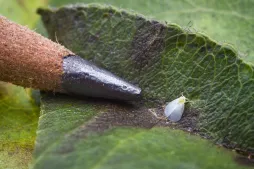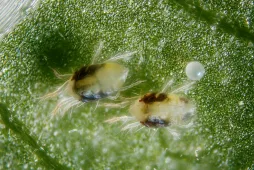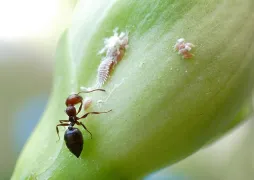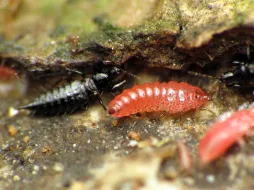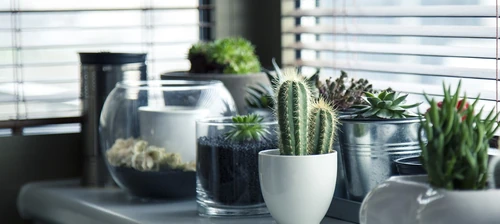Philodendron verrucosum, a philo with velvet leaves
A semi-epiphytic plant in the Araceae family, Philodendron verrucosum is native to Central America. It is found in mid-mountain forests from Costa Rica to Bolivia. Recently, however, it has extended its territory to the rest of the world. It can now be found in the interiors of Europe and beyond.
How to recognize Philodendron verrucosum?
Philodendron verrucosum is a climbing plant that can reach a metre in height and 80 centimetres in spread. In the wild, it uses its aerial roots to cling to trees. In pots, it needs only a stake. It can also be grown as a hanging plant, but its foliage is less imposing.
Stems measure between 20 and 90 centimetres. They support purple petioles covered with white down.
Their colors contrast with the leaves. The upper surface is dark green, veined with white and silver, and the underside is purple. Heart-shaped, they have wavy margins and a velvety texture. Blades can be 20 centimetres long at maturity.
Flowering is rare indoors. In the wild, Philodendron verrucosum has dark-green spathes enclosing the light-green or white spadix.
Like philodendron 'Birkin and other Araceae, Philodendron verrucosum is toxic. Keep the plant out of reach of pets and young children. Remember to wear gloves when handling the plant.
Our maintenance tips
Philodendron verrucosum are not difficult to care for. Regular watering, a little moisture, a pot optimized for drainage and a little fertilizer are all that's needed.
Watering
Water when the soil is dry, for about three centimeters. Use room-temperature, non-calcareous water, preferably rainwater. When watering, avoid wetting the leaves.
Thirty minutes after watering, drain off any stagnant water in the saucer. It may rot the roots.
To improve humidity, place your Philodendron verrucosum with your other plants or place its pot on a dish of moist clay balls.
Spray
In addition to regular watering, misting prevents the plant from drying out due to heat in summer and heating in winter.
Philodendron verrucosum do not like hard water. Preferrainwater or filtered water.
Repotting
In spring, transfer your Philodendron verrucosum to a larger pot, so that it can continue to grow.
Philodendron verrucosum likes to be cramped. Re-pot only when the roots begin to emerge from the pot.
In a pierced terracotta pot, pour a layer of clay balls. Add a mixture of houseplant potting soil and perlite.
Clean the root ball of your Philodendron verrucosum by removing the remains of the previous substrate. Place your specimen in the center of the pot and cover with potting soil. To allow the roots to breathe, pack gently as you go along.
Philodendron verrucosum if you like stakes for hanging, don't hesitate to supply one.
Fertilization
You can stimulate the development of your plant during its growth phase, in spring and summer, with fertilizer.
To promote the growth of your philodendron verrucosum, use a green plant fertilizer.
Cleaning
The dust that accumulates on the leaves of your Philodendron verrucosum slows down the photosynthesis process. To enable it to thrive, dust regularly and gently.
To remove dust, wipe both sides of the leaf with a soft, slightly damp cloth. Support the larger ones with your other hand to prevent damage.
If your plant looks dirty, you can add some black soap to the water to moisten your cloth.
To remove dust, wipe both sides of the leaf with a soft, slightly damp cloth. Support the larger ones with your other hand to prevent damage.
If your plant looks dirty, you can add some black soap to the water to moisten your cloth.
Pinch
Pinch your Philodendron verrucosum during its growing season.
There may be several reasons why you want to deadhead your Philodendron verrucosum: to contain its growth, to multiply the plant or to stimulate its development.
Use your fingers or sharp, disinfected secateurs to cut between two knots.
Wear gloves when handling your plant.
Wear gloves when handling your plant.
Cutting
Cutting is carried out during the strong growth phase, generally in spring and early summer.
Locate a node on the stem with at least one leaf and aerial roots. Cut off two centimetres below with clean, sharp secateurs.
Once you've obtained your graft, place it in a vase or glass filled withwater at room temperature. Make sure the node is completely submerged.
Place your cutting in a bright spot, but without direct sunlight. Change the water regularly to keep it clear.
Place your cutting in a bright spot, but without direct sunlight. Change the water regularly to keep it clear.
Diseases / Threats
Information
| Family | Araceae - Araceae |
| Type | Philodendron - Philodendron |
| Species | Philodendron verrucosum - Philodendron verrucosum |
| Lifecycle | Perennial |
| Foliage | Evergreen |
| Exposures | |
| Substrats | |
| Planting method |
In pots |
| Categories | |
| Tag |
Toxic |
| Origin |
Central America |
| Hardiness (USDA) | 10a |
| Leaf color |
|
| Flower colors |
|
Discover plants from the same family
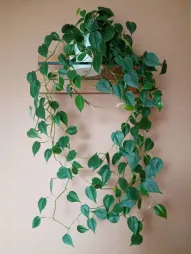
Philodendron hederaceum
Discover
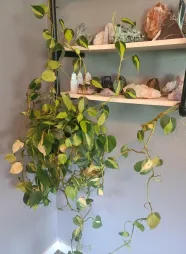
Philodendron Brasil
Discover
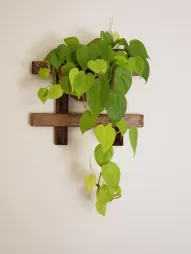
Philodendron Lemon Lime
Discover
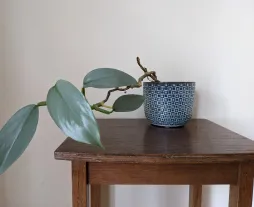
Philodendron hastatum
Discover













